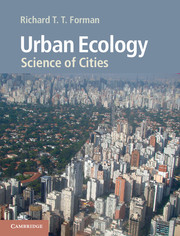Foreword
Published online by Cambridge University Press: 05 June 2014
Summary
The term “urban revolution” was introduced by Gordon Childe in 1936 to highlight the powerful process of transforming agricultural societies to large complex urban centers. His model describes how communities, beginning around 9000 years ago, grew from tens or hundreds to thousands of people. In 3100 BC, Memphis, Egypt was the largest city in the world with over 30 000 residents. Today, the Cairo metropolitan area has over 17 million inhabitants and ranks 15th on the list of the world’s largest cities. Mega-cities such as Tokyo, Seoul, Mexico City, and New York have over 20 million urban dwellers and continue to grow. The scale and complexity of the urbanization process originally depicted by Childe has little resemblance to what is happening today.
In the short history of humans on our planet, the number, population size, spatial extent, rate of growth, and degree of environmental impact of cities are unprecedented. Today, cities and towns face a myriad of formidable environmental challenges concerning food production, energy, water, waste management, and pollution, as well as social challenges in regard to jobs, poverty, and human health and wellbeing. I propose that as a result of the current rate and magnitude of urbanization around the globe, we are on the cusp of a new “urban revolution.” The goal and rallying call of this revolution is “We Want Healthy, Liveable, Sustainable, and Resilient Cities and Towns.”
- Type
- Chapter
- Information
- Urban EcologyScience of Cities, pp. ix - xiPublisher: Cambridge University PressPrint publication year: 2014
- 1
- Cited by

